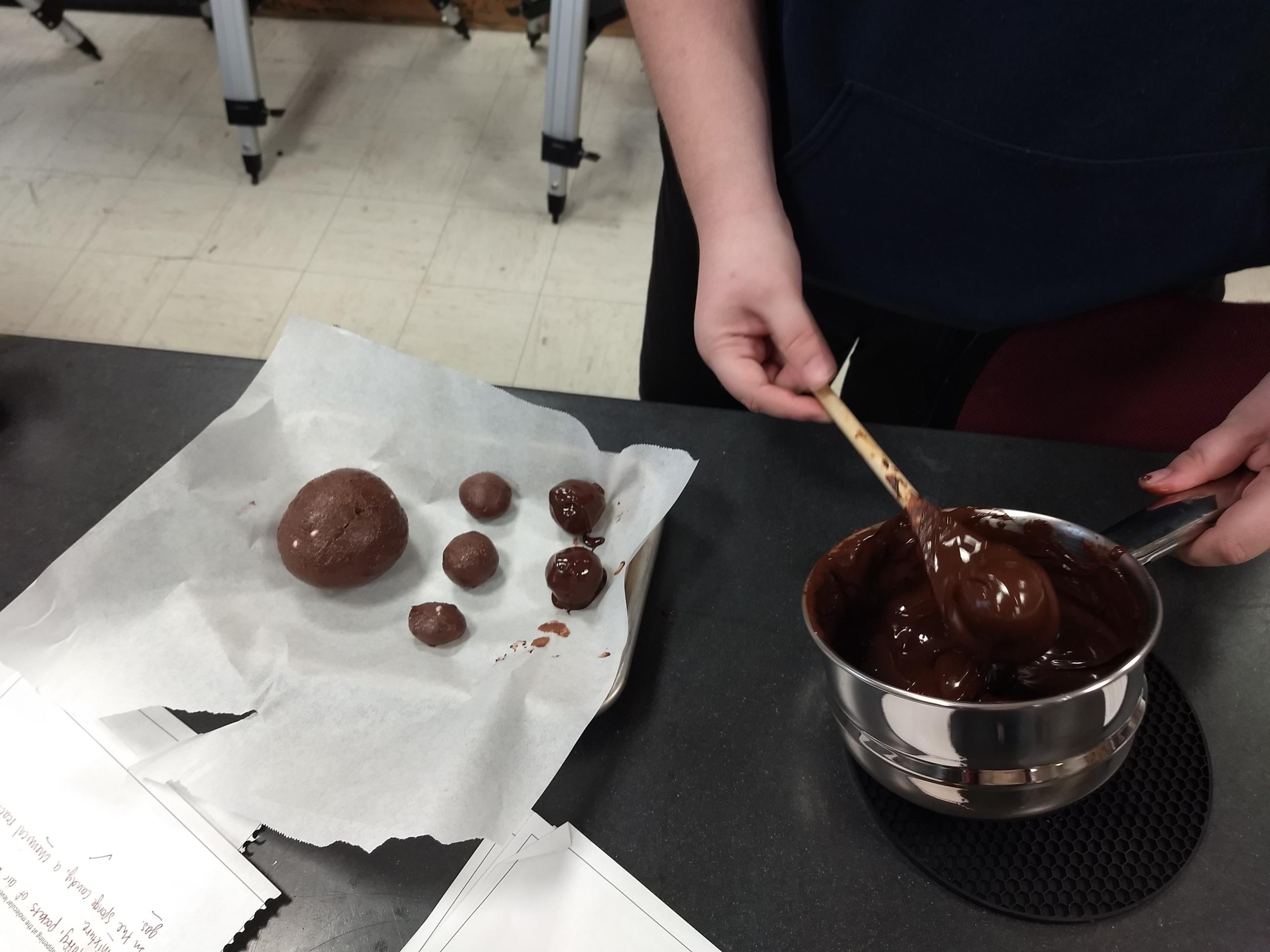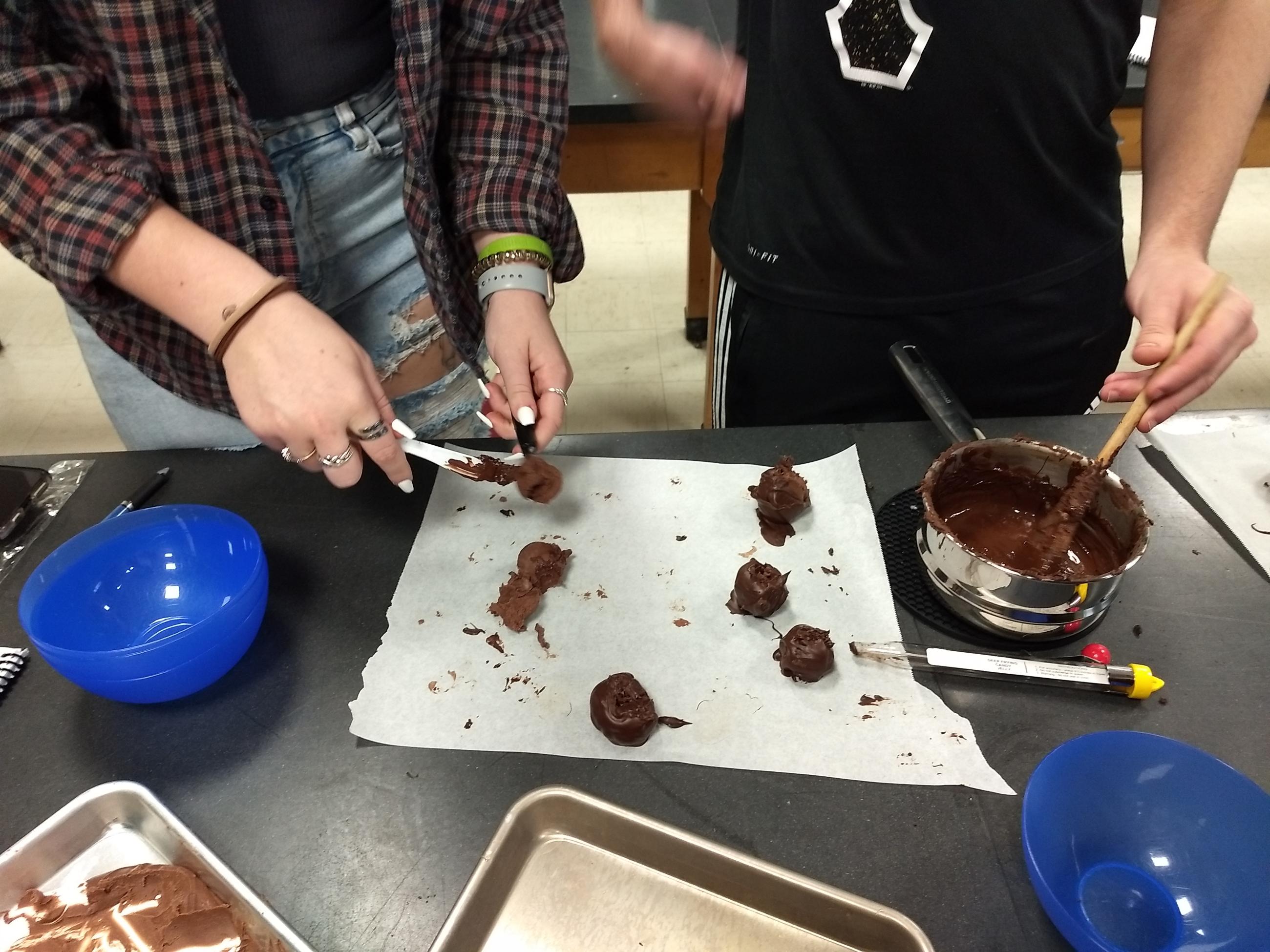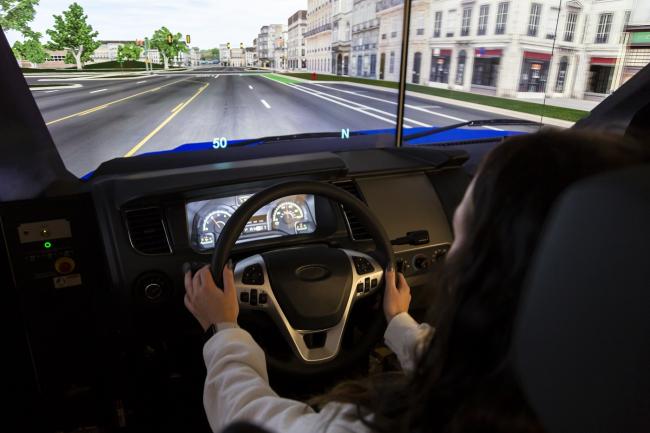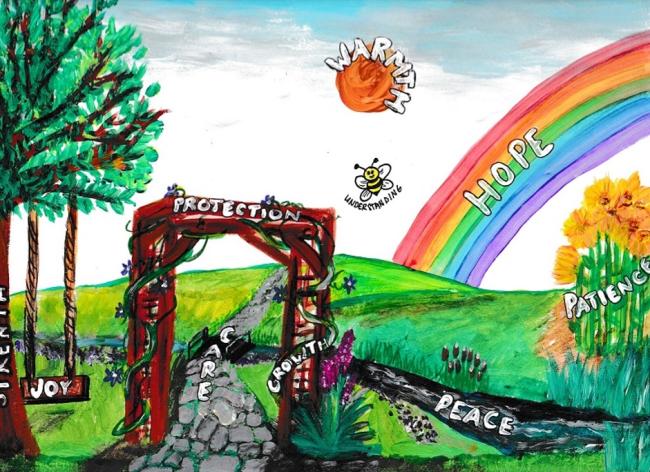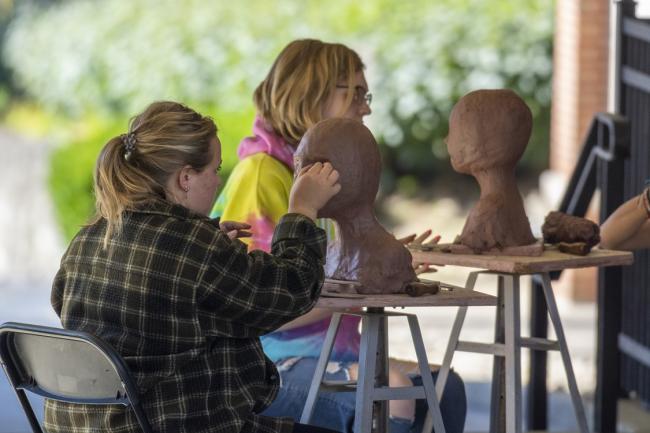Course name: CHE 105 Contemporary Topics in Chemistry (Sugar & Science Lab)
Instructor: Dr. Evonne Baldauff, Chairperson for the Chemistry and Forensic Science Department, Professor of Chemistry and Assistant Provost for Online/Distance Learning and Curriculum Development
"It was cool how the gen ed class was not only fulfilling the gen ed, but also helping each of us learn practical skills for life."
Course description: The goal of the lab is to use candy-making to help understand chemistry. Sugar is a molecule. When we transform sugar into caramel, for example, we are subjecting it to chemical transformations. By examining the product (candy) of these chemical reactions, we can consider what is happening to the molecules simply by using our sense of taste, smell, and touch. The outcome is to gain an understanding of the ways molecules combine, break apart, and change by making and observing different types of confections such as caramel, chocolate, taffy, gummy candy, and lollipops.
Instructor commentary: "CHE 105 is a course we offer for students to take to complete the scientific reasoning component of their general education requirement. For some of these students, science can seem daunting and inaccessible. We aim to take an approach to teaching chemistry by putting it into a context that everyone can relate to and enjoy: making candy! We want students to feel that they can learn science no matter their previous experience or knowledge base. Because candy is such a common product, we can use that as a baseline for relating it to more complex chemical topics without bogging down students in too much technical material. We allow them to experience chemistry in a context that they can readily understand. Not only do students spend time employing the scientific method through candy-making processes, but they also gain a little cooking knowledge along the way! One of my favorite experiments from the lab is tempering chocolate. It is a very precise and tricky procedure that involves acute attention to temperature changes to find the correct crystal form of the chocolate to produce a firm, shiny product with good ‘snap.’ Students have to put their entire focus and understanding into the process to attain good results. Their detail efforts produced beautiful (and tasty) chocolate truffles!" - Dr. Evonne Baldauff
Student commentary: “I really enjoyed the class. When I enrolled, I had no clue that I would be cooking in this class, but I was thrilled when I found out the first week. It was a genuinely fun class that I looked forward to going to every week. It was cool how the gen ed class was not only fulfilling the gen ed, but also helping each of us learn practical skills for life. I learned how to make all kinds of sweets, but more importantly, I learned that I can clean a pan full of badly burned candy by just boiling water in it.” - Colin Faber, computer security and forensics major from Strabane, Pennsylvania
The Department of Chemistry and Forensic Science
As a student in the Department of Chemistry and Forensic Science, you'll be ready for a career both in and out of pure chemistry. Our graduates are working in medicine, pharmacology, agriculture and soil science, geology, mining and metallurgy, material science, engineering, patent law, pollution control, and ecology.

